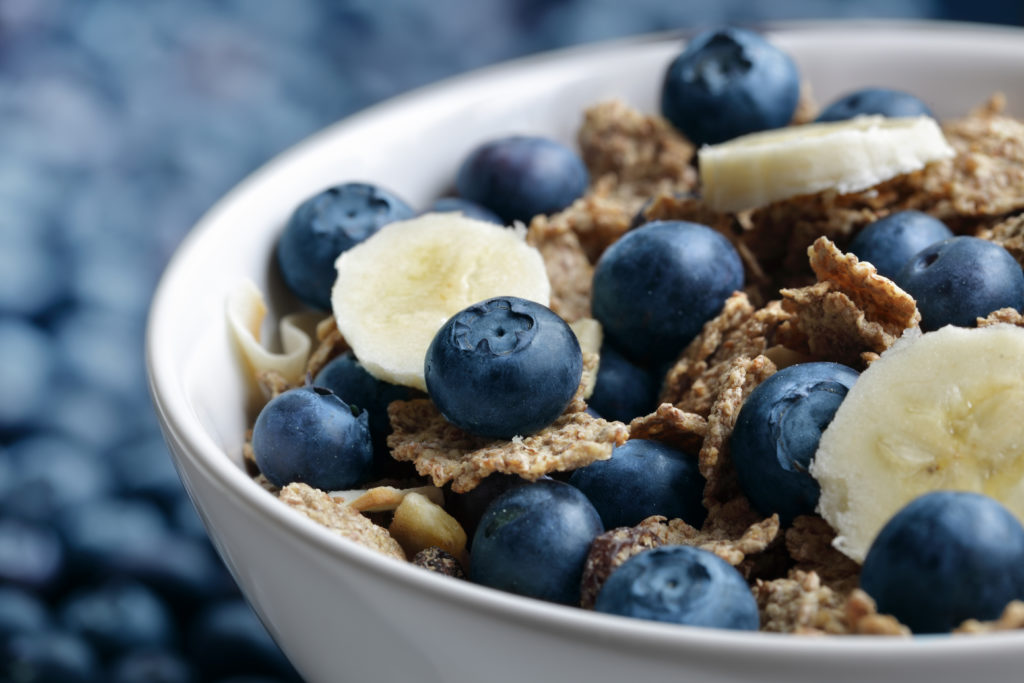Are you getting enough fibre from the food you eat? Here’s a ‘rough’ way to find out.
Most British Columbians are not getting enough fibre in their diets. Using FoodTrack—Check on Fibre is an easy way to find out if you are getting enough, and even more importantly, helps you make a plan to improve if you need to.
What is fibre?
Fibre is the component of food that isn’t digested. It sounds simple, but the world of fibre is fairly complex and evolving. There are several definitions:
- Dietary fibre refers to the nondigestible carbohydrates found in plants.
- Functional fibre refers to the isolated, nondigestible carbohydrates that have beneficial effects. Functional fibre can include components isolated from plants (like bran or inulin) as well as nondigestible carbohydrates found in animal foods.
- Total fiber is the combination of dietary fibre and functional fibre.
Examples of fibre include cellulose, hemicellulose, inulin, oligofructose, fructoligosaccharide, lignin, pectin, psyllium, resistant starch and gums.
How much fibre do you need?
Adult women need about 25 g total fibre per day, while adult men need 38 g per day, according to the Dietary Reference Intakes set by Canada and the US.
Current food composition data gives fibre values as dietary fibre. While this is not identical to total fibre, it is the best approximation current information allows. FoodTrack—Check on Fibre uses dietary fibre values from the Canadian Nutrient File.
Why do you need this much fibre?
Fibre has many benefits, but you need to eat a variety of fibre—and hence a variety of fibre-containing foods—to enjoy all the benefits.
Fibre contributes to gastrointestinal health, cardiovascular health and reduced risk for diabetes. It helps keep you regular, moderates blood glucose level and moderates blood lipid levels. It provides a fermentable food for the gut microbiome, contributing to a healthy gut microflora. Fibre that promotes the growth and health of the good bacteria in your gut are known as prebiotics.
Where can you find fibre?
Dietary fibre is found in fruits, vegetables, whole grains, legumes, cereals, nuts and seeds. While some foods are very concentrated in fibre (half a cup of baked beans, for example, has about 7 grams) you probably will get more fibre in a day from the slow and steady contribution of the roughly 2 grams or so provided by the typical serving of fruits, vegetables and grains.
What are some top tips to add more fibre
- Aim to include two types of vegetables or fruit at lunch and supper.
- Eat more whole grain breads and cereals.
- Add wheat germ, chia seeds or nuts to cereals and desserts.
- Choose vegetable, bean or lentil soups.
- Add cooked or canned beans to a salad.
- Add whole grain cereal and berries to yogurt.
- Choose one food each day with 5 or more grams of fibre per portion. (For a list of high fibre foods, check out FoodTrack—Check on Fibre.)
How accurate is Check on Fibre?
Check on Fibre was validated by examining one-day food records of BC residents from a variety of ethnic backgrounds. Fibre intake was calculated using the Canadian Nutrient File and compared to the estimates from Check on Fibre. There was 100% concurrence between both methods for determining diets that met the recommendation and diets that didn’t meet recommendations. Less than 10% of the people in this validation study met recommendations, and most people were only getting about 16 grams of fibre.
Get your copy of FoodTrack—Check on Fibre to easily add up the fibre you get from the food you eat and plan to make improvements if you need to.
.
References
- Institute of Medicine. Dietary Reference Intakes for Energy, Carbohydrate, Fiber, Fat, Fatty Acids, Cholesterol, Protein and Amino Acids (Macronutrients), 2005. National Academy Press.
- Slavin J. Fiber and Prebiotics: Mechanisms and Health Benefits. Nutrients 2013; 5(4):1417-1435.
